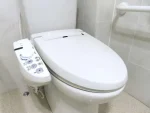What is the Memorandum of Cooperation on Specified Technical Intern Trainees? Host country and country-specific immigration procedures.

The "Specified Skill System," established in 2018, is a system for accepting foreign human resources with certain expertise and skills only in specific fields.
In order to accept foreign human resources under this program, a "bilateral memorandum of cooperation" signed with the sending country is a key point. The MOU differs from country to country, but its purpose is to facilitate the smooth acceptance of foreign human resources by stipulating the procedures and necessary documents for sending and receiving them.
In order for companies to take advantage of the Specified Technical Skills Scheme, they must understand the procedures and regulations for each sending country and respond appropriately. This article will provide an overview of the Memorandum of Cooperation under the Specified Technical Skills Scheme and the countries eligible to receive such workers, as well as a summary of points to keep in mind for each sending country.
What is a bilateral Memorandum of Understanding (MOU) of cooperation between a recipient country and another country regarding specific skills?

In 2008, the Immigration Control and Refugee Recognition Act and the Act for Establishment of the Ministry of Justice (hereinafter referred to as the "Immigration Act") established the "Specified Skill System". The purpose of this system is to accept foreign workers in order to solve labor shortages in specific fields. In principle, foreigners from any country can obtain the "Specified Technical Skills" status of residence, but in practice, the number of countries in which this status can be obtained is limited.
As of February 2024, the Japanese government had established a Memorandum of Understanding (MOU) with the following 15 countries: Vietnam, the Philippines, Cambodia, China, Indonesia, Thailand, Myanmar, Nepal, Mongolia, Malaysia, Sri Lanka, Bangladesh, Uzbekistan, Pakistan, and others. As of February 2024, the following 15 countries have signed a Memorandum of Understanding (MOU) for cooperation.
Philippines Cambodia
Nepal Myanmar
Mongolia Sri Lanka
Indonesia Vietnam
Bangladesh Uzbekistan
Pakistan Thailand
India Laos
Bhutan
A distinctive feature of this system is that bilateral arrangements have been created with each country to establish a framework for information sharing aimed at eliminating malicious intermediary businesses, such as those that collect deposits from foreigners seeking to come to Japan. In other words, it is important for Japan and the sending country to sign a memorandum of cooperation in order to accept foreign human resources under the Specified Skill System.
What is a bilateral memorandum of cooperation?
A bilateral memorandum of cooperation is an arrangement between the government of Japan and the government of the sending country for the acceptance of foreign human resources under the Specified Skill System. The Memorandum of Understanding defines the details of cooperation between the two countries regarding the sending and receiving of foreign nationals with specified skills.
Specifically, the basic collaborative framework includes the following
Sharing the purpose of sending out and accepting specified skilled foreign nationals.
Establish a contact point for effective cooperation based on the memorandum of cooperation
Not to disclose to third parties confidential information of the other State's ministry or department obtained through cooperation and information sharing
Establish scope of cooperation (Japanese ministry commitments, target country ministry commitments, information sharing, joint committee)
The framework should be reviewed after two years of operation of the system.
The bilateral Memorandum of Cooperation is an important arrangement that forms the basis of the Specified Technical Skills System. By working closely with the sending country, we can ensure the appropriate outbound and inbound flow of specified skilled foreign nationals.
What about acceptance from countries that do not have bilateral memorandum of cooperation arrangements?
Since it is not a requirement to be a national of the country that created the bilateral arrangement, it is possible to accept a foreigner from a country that has not created the bilateral arrangement.
However, some sending countries may have their own sending procedures. Details are described below, but we recommend that you check the procedures in the sending country before applying for residency. Even in countries where the departure procedures are still being developed, it is possible to apply for residency in accordance with the immigration laws and regulations.
Key Points of Various Procedures for Specified Technical Foreigners by Nationality

When accepting a foreign national with specified skills, the necessary procedures differ depending on whether or not a bilateral arrangement is in place. Here, we will explain the key points for both cases where the confirmation of outbound procedures is required and where it is not.
For countries with an outbound procedure
Some countries that have created bilateral arrangements have established sending procedures based on their own national regulations and have issued documents certifying that they have followed such procedures.
If the bilateral arrangement stipulates that the Japanese side is to verify these documents, the Japanese side will submit these documents at the time of application for residency and make a comprehensive determination as to whether the requirements under the Immigration Control and Refugee Recognition Act have been met.
For countries without an outbound procedure
On the other hand, for countries where bilateral arrangements do not stipulate the verification of documents, it is not necessary to submit such documents when applying for residency, and the applicant will be judged simply on the basis of whether he/she meets the requirements of immigration laws and regulations.
However, it is possible that even if your application for various residence statuses in Japan is approved, you may not be able to obtain permission to leave the sending country. It is important to confirm the procedures for sending and departing countries in advance.
Which countries have their own documents to be submitted when applying for residency, and which countries have their own sending-out procedures?

Let's take a look at the specific countries that require unique documents to be submitted when applying for various residency statuses and those that have an outgoing procedure.
(1) Cambodia
If you wish to accept a technical intern from Cambodia, you will need to submit a registration certificate. This operation started on August 5, 2019.
(2) Thailand
Technical intern trainees from Thailand who have completed Technical Internship No. 2 or Technical Internship No. 3 and wish to change their status of residence to Specified Skill are required to submit an employment contract certified by the Office of the Labor Attaché of the Royal Thai Embassy in Japan. This operation started on July 27, 2020.
(3) Vietnam
For technical intern trainees from Vietnam, a nominee list (specified skilled foreigner list) must be submitted after February 15, 2021.
In the case of an application for a Certificate of Eligibility, the applicant must obtain approval of the Recommendation Form (Form 1) from the DOLAB (Department of Labor Affairs, Overseas Labor Administration) in advance, and submit it together with other necessary documents to the regional immigration office. In case of application for permission for change of status of residence, the applicant must obtain approval of the Recommendation Form (Form 2) from the Embassy of Vietnam in Japan in advance and submit it together with other necessary documents to the Regional Immigration Office.
However, when applying for permission for change of status of residence in order to change the host institution or field of study due to a change of employment within the "specified skills" status of residence, or when applying for permission for extension of period of stay, submission of a recommendation sheet is not required.
In addition, applications for permission for change of status of residence from Vietnamese nationals residing in Japan after April 12, 2021, for the time being, will be handled differently depending on the status of residence. If the status of residence is "Technical Intern Training," a list of references must be submitted, but if the status of residence is "College Student," a list of references may or may not be required, depending on the period of completion of the course, etc. Those whose status of residence is other than "Technical Intern Training" or "College Student" do not need to submit a Letter of Recommendation.
(4) Philippines
When accepting technical intern trainees from the Philippines, the Japanese host institution must submit the required documents to the Philippine Overseas Labor Office (POLO) of the Embassy of the Republic of the Philippines in Japan, undergo the prescribed screening process, and then be registered with the POEA of the home country.
On top of that, the Filipino trainee must obtain an Overseas Employment Permit (OEC) from the POEA and present the OEC upon departure from the Philippines.
(5) Nepal
After obtaining a visa for "Specified Technical Skills" status of residence, or after change of status into "Specified Technical Skills" status of residence has been approved, you must leave Japan with a re-entry permit (including deemed re-entry permit) and obtain an Overseas Work Permit from the Japan Affairs Division, Employment Management Bureau, Ministry of Labor, Employment and Social Security of Nepal upon your temporary return to Nepal, The Overseas Work Permit must be presented at the time of departure from Nepal.
(6) Indonesia
When recruiting Japanese technical intern trainees from Indonesia, the Indonesian side strongly requests that Japanese host organizations register with the Indonesian government's "Labor Market Information System (IPKOL)," which is a system for recruiting and job seeking.
There are many Indonesian nationals who are interested in the specific skill system, and those who wish to find employment in Japan access this IPKOL to search for job opportunities.
Indonesian nationals who have been issued a Certificate of Eligibility for the "Specified Technical Skills" visa status must register online with the Indonesian Government's Overseas Worker Management System (SISKOTKLN) and obtain an ID number issued after completing the SISKOTKLN registration before applying for a visa to travel to Japan. After obtaining the ID number issued after completing the SISKOTKLN registration, you need to apply for a visa at the Embassy or Consulate-General of Japan in Indonesia.
(7) Myanmar
If you plan to come to Japan from Myanmar as a foreigner with specified skills to work overseas, you must apply for an Overseas Worker Identification Card (OWIC) from the Ministry of Labour, Immigration and Population (MOLIP) of Myanmar. Overseas Worker Identification Card (OWIC) application to the Ministry of Labour, Immigration and Population (MOLIP) is required if you plan to work overseas.
Myanmar nationals residing in Japan who have concluded an employment contract are required to apply for a passport (renewal) at the Embassy of Myanmar in Japan.
(8) Mongolia
When accepting a new Mongolian national with specified skills, the Japanese host institution is required to conclude a bilateral contract with the Labor and Welfare Services Agency of the Mongolian Ministry of Labor and Social Security (GOLWS) for the recruitment of Mongolian nationals.
As described above, the documents and procedures required when applying for residency vary from country to country. When considering the acceptance of foreign personnel, it is important to check the Immigration Bureau's website for the latest information on each sending country and take appropriate measures.
What is a foreign country excluded from accepting specified skilled foreign nationals?

Some countries are excluded from the admission of specified skilled foreign nationals. Foreign nationals from countries or regions that do not cooperate in the smooth execution of the deportation order, such as by not fulfilling their obligation to take back their own citizens, are not allowed to be accepted as specified skilled foreign nationals, as they are subject to deportation under the Immigration Control and Refugee Recognition Act.
As of April 2023, the Islamic Republic of Iran is considered an excluded foreign country.
When a company is considering accepting a foreign national with a specific skill, it should also check to see if he or she does not fall under the category of an excluded foreign national.
summary
In this article, we have explained the outline of the bilateral memorandum of cooperation under the specified skills system and the countries eligible to receive the program, and summarized the differences in procedures and points to keep in mind for each country.
Accepting foreign human resources through the Specified Skill System is an effective means for Japanese companies to resolve labor shortages. On the other hand, since the procedures and documents required differ from country to country, it is necessary to understand the regulations of the sending country and respond appropriately.
By understanding the contents of the bilateral memorandum of cooperation and complying with the procedures for each sending country, it will be possible to smoothly receive foreign human resources. We hope that companies considering the use of foreign human resources will refer to this article to make appropriate preparations and responses.
Your support will help us!
Thank you for visiting Goandup Picks. Our mission is to provide you with more useful information to show the world what Japan has to offer.
Your support will help us to further enhance our activities, so please support us!






